“Every year, nine million tons of plastic enter the ocean. Scientists tell us that unless we get new laws and policies on the books, then in the next decade, for every three pounds of fish in the ocean there will be one pound of plastic,” visiting faculty and senior fellow at CAPA Judith Enck explains. “And that just stopped me in my tracks, and I decided I wanted to work extensively with preventing that statistic from coming true.”
This strain of inspiration, mixed with the fear of what could happen in the future, has existed all throughout Professor Enck’s career. Since the beginning, she has noticed the threat posed to our environment and the immediate action required to create a better future for the planet. Her personal drive to accelerate this process has been running non-stop since her college years; “I entered college knowing I wanted to do something in the public policy field,” Enck says.
Though she was torn between social work and law school, internships and volunteer work steered her in the best direction for her passions. “I did a legislative internship with NYPIRG my junior year and that just totally changed my viewpoint on what I wanted to do next. I wanted to do environmental activism.” The path for her career suddenly became clearer; “I felt like, ‘why go to law school to interpret the law, when if you’re an environmental lobbyist, you can help write the law?’ which was probably a little arrogant for a 22-year-old.”
This philosophy led Enck to the career path that the planet needed her on the most.
She worked for the New York State governor’s office under two governors: Eliot Spitzer and David Patterson. “I was the main environmental staff-person in the government office, so I helped negotiate between budgets for all the environmental agencies,” Enck says.
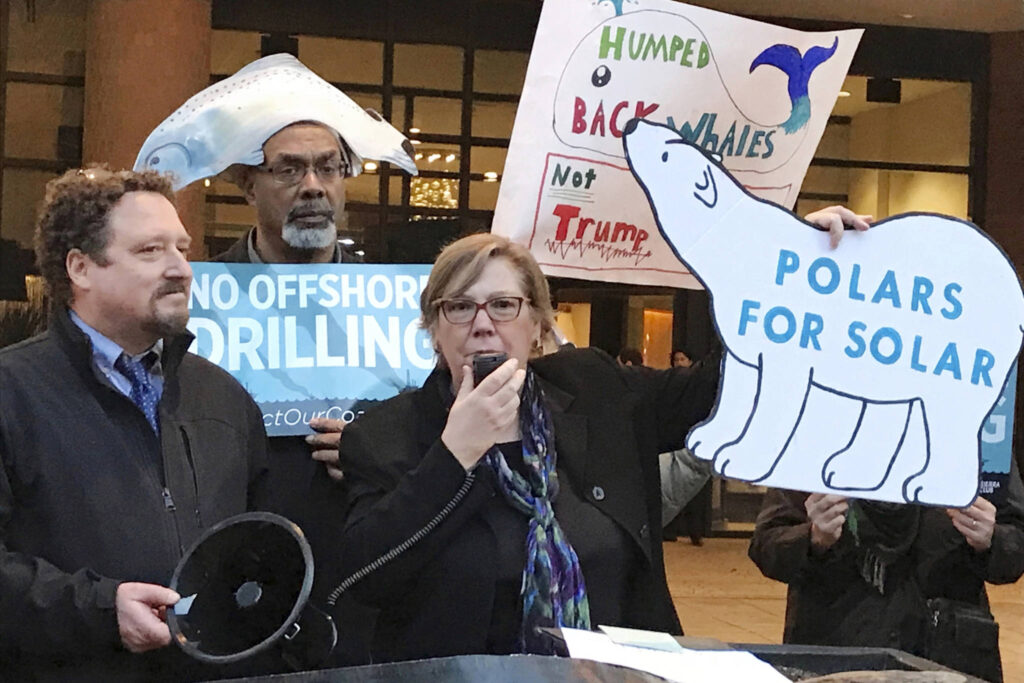
Overseeing eight agencies, acting as their liaison, and writing drafts of the governor’s environmental speeches and press releases were just a few of her duties. Workdays needed to be conducted on-site in Albany, sometimes lasting until ten or eleven o’clock at night. “This was before telecommuting, so you had to be at the capital all the time, on-call. My goal was to get home in time to see the Daily Show at eleven o’clock.”
Long days were worth the hustle and bustle. She helped expand the New York Bottle Bill, putting a five cent deposit on water bottles; added 100 staff members to the environmental agency; renamed the Triborough Bridge to Robert F. Kennedy Bridge—where she got to work with the Kennedy family a considerable amount—and much more. She kicked off action against hydrofracking in New York, stating that, “The fracking industry wanted to start right away and I said, ‘wait a minute, we have to do an environmental impact statement on this.’ This ultimately led to Governor Cuomo prohibiting fracking in New York.”
Working in the governor’s office was a real highlight for Enck. “It was action-packed. It was ‘rock ‘em and sock ‘em.’ There were new things coming at you every day.”
While working for Governor Patterson, Enck was appointed by President Obama to serve as Region 2 Regional Administrator for the Environmental Protection Agency (EPA). “The regional offices are where the action is. That’s where you’re closer to local problems, you can be entrepreneurial, you can really get things done.” Enck oversaw New York, including eight of its Native American Nations, New Jersey, Puerto Rico, and the US Virgin Islands. She had a $700 million annual budget and 800 staff. “We worked on everything from drinking water, to pesticides, to wetlands protection, to climate change, to solid waste issues, and a little bit on plastics,” she says. “It was very diverse, demanding, and rewarding. I absolutely loved working there.”
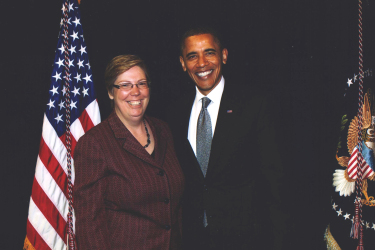
Enck’s years at the EPA were filled with substantive accomplishments. “I got New York City, the largest public school district in the country, to address a very serious problem that they didn’t want to address. We discovered there were very toxic PCBs in the old lighting in many of the buildings that needed to be removed,” she recalls. “The city was not aware of that, they didn’t want to do it, so we brought an enforcement action against them that was in court, then it wasn’t in court, and we reached a settlement with NYC.” The toxic lighting fixtures were finally removed in her last few weeks at the EPA.
She made progress on various toxic waste superfund cleanups, including the Hudson River in New York and the Passaic River in New Jersey. She initiated recycling in Puerto Rico, and “blew the whistle” on people drinking contaminated water in Hoosick Falls. “The state of New York knew that people were drinking highly toxic water for 18 months, and didn’t tell them. So, I called the state of New York and said, ‘you need to tell the public to stop drinking this water and if you don’t, I will.’ They didn’t, so I did.”
What happened here put the issue of “forever chemicals” and PFAS on the map nationally. “They were noodling through, ‘what are safe levels for drinking water? How do you engage the public? How do you do health monitoring?’ and once the Hoosick Falls story broke, it hit the national stage.”
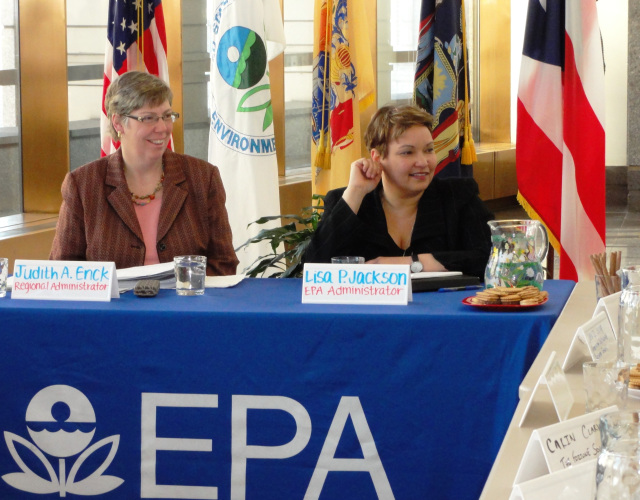
It was her work here that led her to meeting current Bennington faculty David Bond. “He was working with students and other faculty on the problem of contaminated drinking water in Hoosick Falls, New York, Petersburg, and North Bennington,” Enck says. “After I left the EPA, David was urging me to teach at Bennington. I was like, ‘Eh, I don’t know, do I really want to teach?’”
However, this would give Enck the opportunity to start a non-profit project she had in the works, so she took that step. “I thought, ‘of course! I should teach a class on plastic pollution and see if Bennington wants to house my project.’”
The project, Beyond Plastics, is a non-profit project aimed at eliminating plastic pollution in its entirety. “We work on public policy, student education, and grassroots leadership development to get people actively involved in public policy to reduce plastic.” Every semester, she teaches “Beyond Plastic Pollution,” and is working on the Endeavor Foundation Environmental Action Fellowship, which includes a one-credit class both before and after taking part in the program. “What I mostly want to do is educate students on environmental issues, and train them to become the next generation’s environmental leaders.”
She is also trying to start up an environmental action fellowship where about twenty students will be placed with environmental advocacy groups over the January term.
“I really do want to support students who want to jump into the environmental field, it’s desperately needed. If we’re going to solve climate change, we need a lot more people informed and involved,” she explains. “And we need new ideas and new strategies, because the same old stuff just isn’t working.”
Enck’s advice for students is urgent; “Pick an issue that grabs your head and your heart. Read about it, become an expert, and volunteer. I wake up everyday thinking I can help change the world, and when I go to bed at night I’m not always convinced of that but I start everyday thinking that I can.”
Enck stresses the importance of putting a career filled with passion and influence first, and figuring out money later. “It’s important to feed your soul, and a good way to do that is through volunteering. Start doing it while you’re in college.”
She shares what she believes may be a controversial opinion about student involvement at Bennington College. “Students are too insular. We need the Bennington students to look out into the big world and get involved in issues that make a difference. I really want to challenge Bennington students to do more with the world. Pick and issue and just get out there.”
“If you don’t do it while you’re in college, you’re probably not going to do it in the future, because your college life is a lot easier than when you leave. You have the luxury of time, now much more than when you leave college, so make every month count.”
Enck emphasizes that time is of the essence; “Do your work and do your Plan, but our world is plagued with so many problems: poverty, racial injustice, climate, healthcare, inequality. Pick an issue and get involved, and don’t get involved in only an academic way. Get involved in a really hands-on way. Your goal as a Bennington student should be to make a difference.”
You can learn more about her work on her official website.
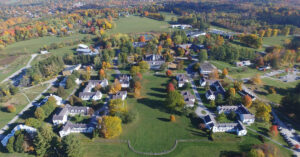
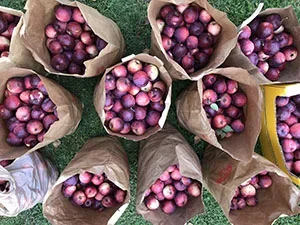
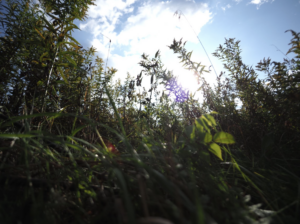
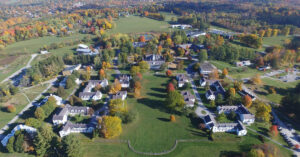
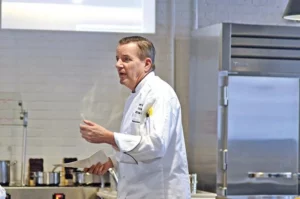
Be First to Comment